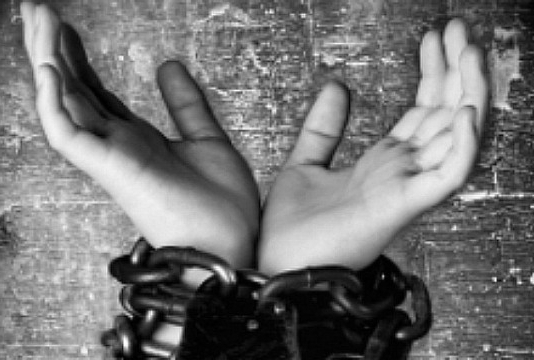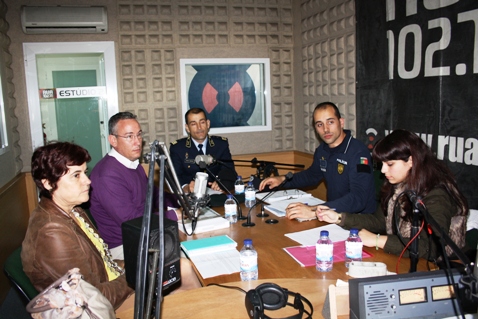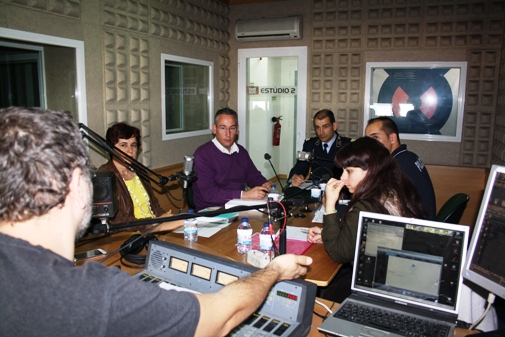 Have you ever wondered if the child you see begging in the street or the girl who prostitutes herself on the side of the road does so because they are forced to? Or if the fruit or vegetables you consume were caught by a duly paid and free worker and not by a slave? Trafficking in human beings is a real and current scourge and one of the most profitable illicit acts, after drug and arms trafficking. In the Algarve, there are those who work every day to fight it.
Have you ever wondered if the child you see begging in the street or the girl who prostitutes herself on the side of the road does so because they are forced to? Or if the fruit or vegetables you consume were caught by a duly paid and free worker and not by a slave? Trafficking in human beings is a real and current scourge and one of the most profitable illicit acts, after drug and arms trafficking. In the Algarve, there are those who work every day to fight it.
The different police forces have sections dedicated to this crime, but civil society also assumes its responsibility. The Association for the Protection of Girls and the Family (Aipar) works closely with the Judiciary Police, PSP, GNR and the Foreigners and Borders Service and helps to find life solutions for those that the authorities manage to free from the web of modern slavery.
This association, the GNR, the PSP and the PJ were represented in the radio program “Impressions”, organized jointly by the Sul Informação and by Rádio Universitária do Algarve RUA FM, to make this reality that almost always pass us by. But, as you could see in this conversation, we can even come across it daily.
 The interview was carried out within the scope of the «Mentalities» initiative, in which the IPSS Farense is involved, which aims to «promote gender equality, combat gender violence and human trafficking», according to the technician from Aipar Cristel Domingos . And one of the key points of this project is the awareness of the population for these problems.
The interview was carried out within the scope of the «Mentalities» initiative, in which the IPSS Farense is involved, which aims to «promote gender equality, combat gender violence and human trafficking», according to the technician from Aipar Cristel Domingos . And one of the key points of this project is the awareness of the population for these problems.
“Contrary to what people might think, this phenomenon exists at an international and national level and is a business that involves large amounts of money, similar to drug trafficking. The black numbers, that is, the unidentified cases, are quite high. In Portugal, we have had several cases of trafficking in persons», framed Inspector Luís Rocha of the Support Center for the Direction of the Southern Directorate of the PJ.
This crime is closely associated with prostitution, but this is far from being the only destination for the victims, who are of the most varied age groups and of both genders. Trafficked human beings can be exploited in other ways, being common their use as slave labor, for organized networks of beggars and even to carry out theft, in the case of minors.
There are cases of trafficking carried out within the borders of Portugal, but most are associated with illegal immigration, namely from "Eastern European countries".
«Here in the Algarve region, and in our area of influence, which goes almost as far as Portel, many cases have been identified, more in the scope of labor exploitation. We have carried out arrests and releases of trafficked persons», revealed the PJ inspector. «Here in the Algarve, in 2012 we had 5 cases of trafficking in Human Beings in 2012 and four in 2013. Often, the concept of trafficking is mixed with fraud at work, but the investigations we carry out make it possible to distinguish between the two crimes. Currently, a trial is taking place with detained drug dealers», illustrated Luís Rocha.
Black figures are the big problem
 “One thing is what exists, another is what we know of”, said Luís Rocha. The black numbers are a problem that the authorities do not easily resolve, but which they can lower with greater vigilance of all.
“One thing is what exists, another is what we know of”, said Luís Rocha. The black numbers are a problem that the authorities do not easily resolve, but which they can lower with greater vigilance of all.
"All the fear inherent in the disclosure and denunciation of this type of crimes generates this difference between the numbers", reinforces commissioner Hugo Marado of PSP de Faro. In other words, often, «apparently, nothing happens», something that has happened a lot in the Algarve.
But the truth is that anyone can start an investigation process, with a simple notice to the authorities. “It is enough that the information arrives, in the way that the citizen understands, even with reservation of identity”, say the police authorities.
“The crime is a public procedure, anyone can report it and it is enough that there is information for the investigation to begin. But, what often happens is that there are reports of another type, which do not initially indicate that there is human trafficking", but which end up being related, revealed, for his part, Cavalry Captain Paulo Santos do Comando Territory of Faro of the GNR.
"We must encourage the denunciation, information and insight of people to be aware of the phenomenon and all aspects that indicate that this type of crime may be occurring, so that someone can investigate", said the captain of the GNR .
Extreme poverty, particularly when it comes to people who have work, prostitution and the act of begging are some of the situations that should lead the common citizen to take an interest in the person's case and try to understand what is really going on. "In our daily lives, we try to get closer to institutions or associations that can represent small groups and serve as a link and communication link with us," added Hugo Marado.
Luís Rocha recalls a situation in which there were 15 people being enslaved in the Alentejo and living in deplorable conditions in a small village, “and no one denounced”. “People used to fetch food from the garbage cans, because they didn't have any money”, he recalled and went through the GNR.
“The profile of people who fall into these networks are those who have difficulty saying no. Then there is the loneliness factor. The act of cutting networks, cutting contacts. And this loneliness means that, in fact, the only contact is the aggressor and that environment, which turns out to be normal», according to the president of Aipar Filomena Rosa.


















Comments